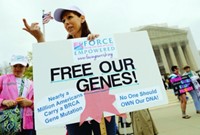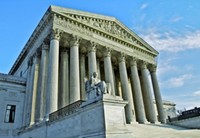Advertisement
Grab your lab coat. Let's get started
Welcome!
Welcome!
Create an account below to get 6 C&EN articles per month, receive newsletters and more - all free.
It seems this is your first time logging in online. Please enter the following information to continue.
As an ACS member you automatically get access to this site. All we need is few more details to create your reading experience.
Not you? Sign in with a different account.
Not you? Sign in with a different account.
ERROR 1
ERROR 1
ERROR 2
ERROR 2
ERROR 2
ERROR 2
ERROR 2
Password and Confirm password must match.
If you have an ACS member number, please enter it here so we can link this account to your membership. (optional)
ERROR 2
ACS values your privacy. By submitting your information, you are gaining access to C&EN and subscribing to our weekly newsletter. We use the information you provide to make your reading experience better, and we will never sell your data to third party members.
Biological Chemistry
Court Reviews Genetic Patents
Supreme Court: Myriad Genetics’ monopoly on genetic cancer tests may be weakened
by Glenn Hess
April 22, 2013
| A version of this story appeared in
Volume 91, Issue 16

Lawyers who attended last week’s Supreme Court arguments over the patentability of human genetic material say the justices appeared skeptical about the decades-old practice of biotechnology companies patenting isolated human DNA sequences. But the justices seemed open to the possibility of allowing patents on synthetically produced genetic material, according to the legal analysts.
For the case, Association for Molecular Pathology v. Myriad Genetics, the high court is examining whether genes removed from a cell in a laboratory are human-made inventions eligible for patent protection or products of nature that cannot be patented.
“The outcome of the case will have a significant effect on the incentives for investment in the biotechnology industry, particularly in personalized medicine and diagnostics,” says Tim A. Worrall, a patent lawyer at Dorsey & Whitney.
At issue in the case are seven patents Myriad holds on genetic material—BRCA1 and BRCA2—used in tests to identify a heightened risk of hereditary breast and ovarian cancer.
The U.S. Patent & Trademark Office has granted more than 40,000 patents focused on genetic material, almost 3,000 of which are specifically directed to isolated DNA molecules such as those owned by or licensed to Myriad, a Utah-based biotech firm.
But Myriad’s patents have been challenged by a variety of medical associations and doctors, as well as the American Civil Liberties Union (ACLU). They contend that Myriad’s monopoly on BRCA genetic testing restricts research and patients’ access to medical care.
“Myriad unlocked the secrets of two human genes. But the genes themselves were made by nature, not by Myriad,” ACLU attorney Christopher A. Hansen told the justices. “Myriad deserves credit for having unlocked these secrets. Myriad does not deserve a patent for it.”
But Myriad’s attorney, Gregory A. Castanias, argued that the firm created synthetic molecules of DNA that “had never before been known to the world.”
He suggested that the Court should view isolated DNA like a baseball bat carved from a tree. “A baseball bat doesn’t exist until it’s isolated from a tree. But that’s still the product of human invention to decide where to begin the bat and where to end the bat,” Castanias said.
Although several justices raised concerns about protecting the financial incentives for companies to innovate, most seemed reluctant to consider isolated DNA a human invention. “You haven’t created a type of gene that does not exist in the body,” Justice Antonin Scalia told Castanias.
“The justices seemed to favor the solicitor general’s compromise position that would permit patents on synthetically made complementary DNA but not on isolated DNA,” says Paul M. Rivard, a patent lawyer at Banner & Witcoff. If the Court reaches that conclusion, some but not all of Myriad’s patents would be allowed to stand, likely opening the door for others to offer BRCA tests outside the reach of Myriad’s claims, Rivard says.
Representing the Justice Department, Donald B. Verrilli Jr. told the justices that Myriad isn’t entitled to a patent on isolated DNA “because it is simply native DNA extracted from the body.” But Verrilli added that Myriad’s lab-created synthetic molecules might be patent-eligible, noting that they “don’t correspond to anything in the body.”
Justices including Sonia Sotomayor, Stephen Breyer, and Anthony Kennedy seemed receptive to the middle-ground position suggested by Verrilli. Complementary DNA “is not a product of nature,” Sotomayor said. “It’s a product of human innovation.”




Join the conversation
Contact the reporter
Submit a Letter to the Editor for publication
Engage with us on Twitter